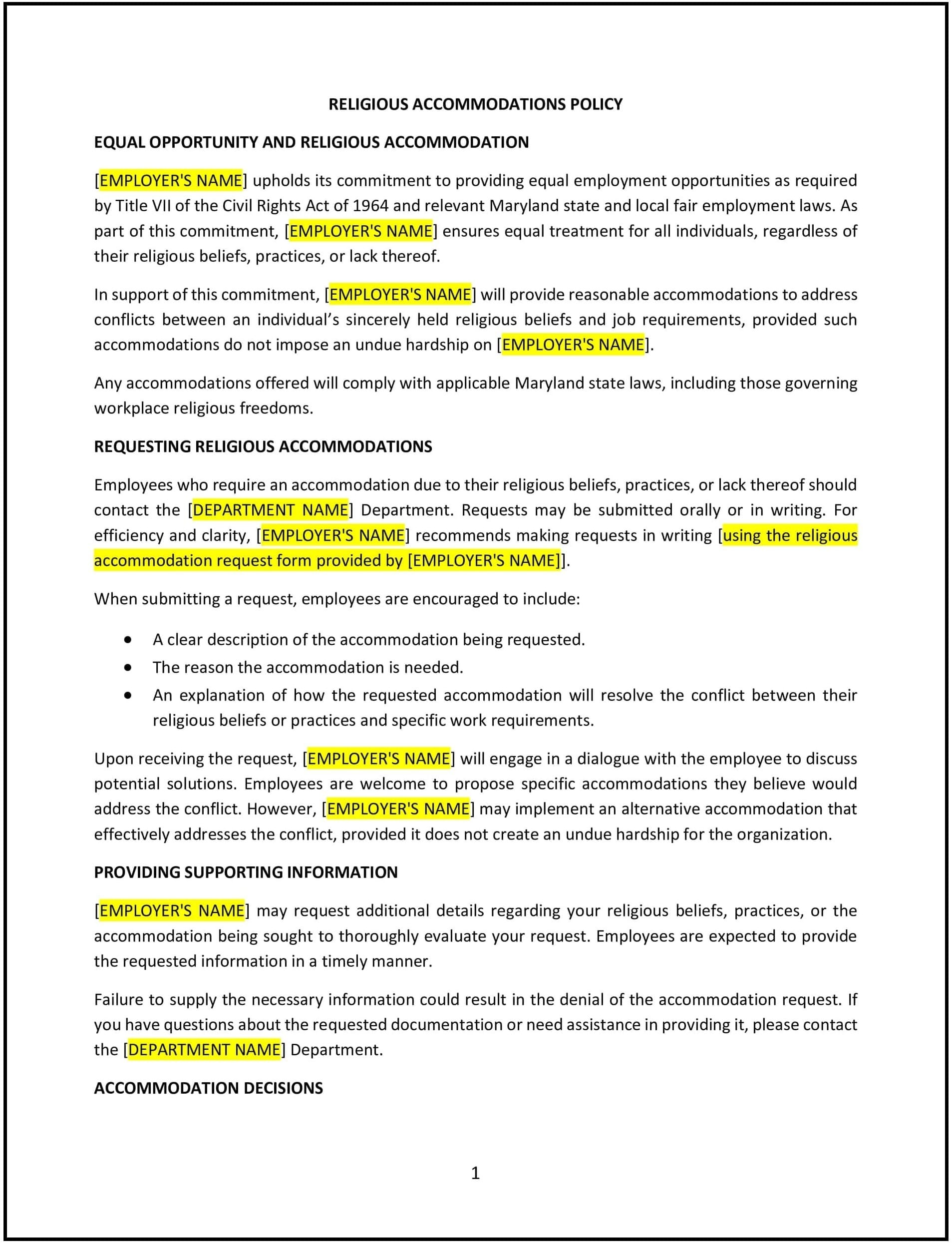Religious accommodations policy (Maryland): Free template
Got contracts to review? While you're here for policies, let Cobrief make contract review effortless—start your free review now.

Customize this template for free
Religious accommodations policy (Maryland)
This religious accommodations policy is designed to help Maryland businesses ensure that employees' religious beliefs and practices are respected in the workplace. It provides a framework for addressing requests for religious accommodations related to scheduling, dress code, and other workplace practices, while balancing operational needs.
By adopting this policy, Maryland businesses can foster an inclusive environment, support compliance with state and federal laws, and respect employees' rights to practice their religion.
How to use this religious accommodations policy (Maryland)
- Define religious accommodations: Clearly outline what constitutes a religious accommodation, such as time off for religious observances, modified dress codes, or schedule adjustments.
- Establish the request process: Specify how employees can request accommodations, including the need for written requests or documentation, and the timeline for submitting requests.
- Evaluate requests fairly: Outline the process for evaluating requests based on the nature of the accommodation and the impact on business operations.
- Balance operational needs: Ensure that accommodations are made where possible without causing undue hardship on the business, such as significant disruptions or financial burdens.
- Set decision-making guidelines: Provide clarity on how decisions regarding accommodations will be communicated and the factors considered in granting or denying the request.
- Reflect Maryland-specific considerations: Incorporate any state-specific laws or practices regarding religious accommodation, including protections for religious practices under Maryland law.
Benefits of using this religious accommodations policy (Maryland)
Implementing this policy provides Maryland businesses with several advantages:
- Promotes inclusivity: Creates a respectful and accommodating environment for employees of all religious backgrounds.
- Enhances employee satisfaction: Shows commitment to accommodating employees' religious needs, boosting morale and retention.
- Aligns with legal requirements: Ensures compliance with federal and Maryland-specific laws regarding religious accommodations, such as Title VII of the Civil Rights Act and the Maryland Fair Employment Practices Act.
- Reduces liability: Mitigates the risk of discrimination claims related to religious practices in the workplace.
- Supports diversity: Reinforces the company’s commitment to diversity and equal treatment for all employees.
Tips for using this religious accommodations policy (Maryland)
- Train managers: Ensure that managers and HR staff are familiar with the policy and how to handle accommodation requests fairly and promptly.
- Communicate with employees: Make the policy accessible to all employees and encourage open discussions about accommodation needs.
- Document decisions: Keep accurate records of requests, decisions, and any accommodations provided for future reference.
- Be flexible: Be open to creative solutions that meet both the employee’s religious needs and the business’s operational requirements.
- Review regularly: Update the policy as necessary to reflect changes in Maryland laws, workplace practices, or business needs.